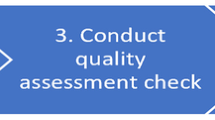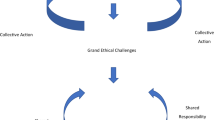Abstract
During the last few decades we have witnessed a proliferation of exercises dealing with the public participation of citizens in various different dimensions of their societies, including issues of science and technology. On the one hand, these mechanisms provide more robust forms of public engagement with matters that were traditionally dealt with by experts; on the other hand, they raise concerns relating to their design, efficiency or potential for the empowerment of citizens. As part of the EC-funded project DEEPEN (Deepening Ethical Engagement and Participation in Emerging Nanotechnologies) a research team in Coimbra, Portugal, was put in charge of identifying the ethical and social “impacts” of emerging nanotechnologies, transforming the traditional focus groups through the incorporation of two methodological innovations: the Pedagogy of the Oppressed and the Theatre of the Oppressed. This article reflects on the outcomes and complexities of the introduction of these two methodologies. Since the participants had little or no information on nanotechnologies, we reflect on the politics of these focus groups by exploring how issues of intervention, subjectivity, representation and agency were interconnected during this exercise of public participation in Science and Technology, analyzing the role of social sciences in developing nanoethics.
Similar content being viewed by others
References
Boal A (1979) Theatre of the Oppressed. Pluto Press, London
Boal A (1992) Games for Actors and Non-Actors. Routledge, London and New York
Boal A (2006) The Aesthetics of the Oppressed. Routledge, London and New York
Bowman D, Hodge G (2007) Nanotechnology and Public Interest Dialogue. Some International Observations. Bull Sci Technol Soc 27(2):118–132
Burri R, Bellucci S (2008) Public perception of nanotechnology. J Nanopart Res 10(3):387–391
Callon M (1998) The laws of the markets. Blackwell, Oxford
Callon M (2006) What does it mean to say that economics is performative? CSI Working Papers Series, 5. Retrieved December 24, 2012, from http://halshs.archives-ouvertes.fr/docs/00/09/15/96/PDF/WP_CSI_005.pdf
Callon M, Lascoumes P, Barthe Y (2001) Agir dans un monde incertain – essai sur la démocratie technique. Éditions du seuil, Paris
Ebbesen M, Andersen S, Besenbacher F (2006) Ethics in Nanotechnology: starting from scratch? Bulletin of science. Technol Soc 26(6):451–462
Foucault M (1995) Discipline and punish. Vintage Books, New York
Foucault M (2006) The Hermeneutics of the Subject—Lectures at the Collège de France 1981–1982. Picador, New York
Freire P (1967) Educação Como Prática da Liberdade [Education as a Practice of Freedom]. (Rio de Janeiro: Paz e Terra)
Freire P (1977) Acção cultural para a libertação e outros escritos [Cultural action for liberation and other writings]. Moraes editors, Lisbon
Goffman E (1969) The presentation of self in everyday life. Penguin, London
Hacking I (2002) Historical Ontology. Harvard University Press, Cambridge
Hamlett P, Cobb M (2006) Potential solutions to public deliberation problems: structured deliberations and polarization cascades. Policy Stud J 34(4):629–648
Hamlett P, Cobb M, Guston D (2008) National Citizens Technology Forum: Nanotechnologies and Human Enhancement. CNS-ASU Report #R08-0003. Center for Nanotechnology in Society, Arizona State University, Tempe, AZ. Retrieved December 24, 2012, from http://cns.asu.edu/files/report_NCTF-Summary-Report-final-format.pdf
Irwin A (1995) Citizen science. Routledge, London and New York
Irwin A, Michael M (2003) Science, social theory and public knowledge. Open University Press, Maidenhead
Latour B (2004) Politics of Nature. Harvard University Press, Cambridge
Law J (2004) After method – mess in social science research. Routledge, London and New York
Macnaghten P, Kearnes M, Wynne B (2005) Nanotechnology, governance, and public deliberation: What role for the social sciences? Sci Commun 27(2):268–291
Macoubrie J (2006) Nanotechnology: public concerns, reasoning and trust in government. Public Understand Sci 15(2):221–241
Mol A (1999) Ontological politics. A word and some questions. In: Law J, Hassard J (eds) Actor network theory and after. Blackwell, Oxford, pp 74–90
Mol A (2002) The body multiple: ontology in medical practice. Duke University Press, Durham
van Heuer B, Leydesdorff L, Wyatt S (2013) Turning to ontology in STS? Turning to STS through ‘Ontology’. Social studies of science (in press). doi:10.1177/0306312712458144
Wilsdon J (2004) The politics of small things: nanotechnology, risk, and uncertainty. IEEE Technology and Society Magazine. Winter 2004:16–21
Woolgar S, Cheniti T, Lezaun J, Neyland D, Sugden C, Toennesen C (2008, June). A turn to ontology in STS? (Paper presented at the workshop “A Turn To Ontology”, University of Oxford)
Acknowledgments
This paper is based on research carried out within the Project DEEPEN (Deepening Ethical Engagement and Participation in Emerging Nanotechnologies), funded by the Science and Society Program, 6th Framework Program, European Commission (Project nr. 036719). While gratefully acknowledging the contribution of other research team members to their reflection, the authors are solely responsible for the views, as well as for the flaws, errors or omissions, contained in this paper.
Author information
Authors and Affiliations
Corresponding author
Rights and permissions
About this article
Cite this article
Carvalho, A., Nunes, J.A. Technology, Methodology and Intervention: Performing Nanoethics in Portugal. Nanoethics 7, 149–160 (2013). https://doi.org/10.1007/s11569-013-0175-5
Received:
Accepted:
Published:
Issue Date:
DOI: https://doi.org/10.1007/s11569-013-0175-5




